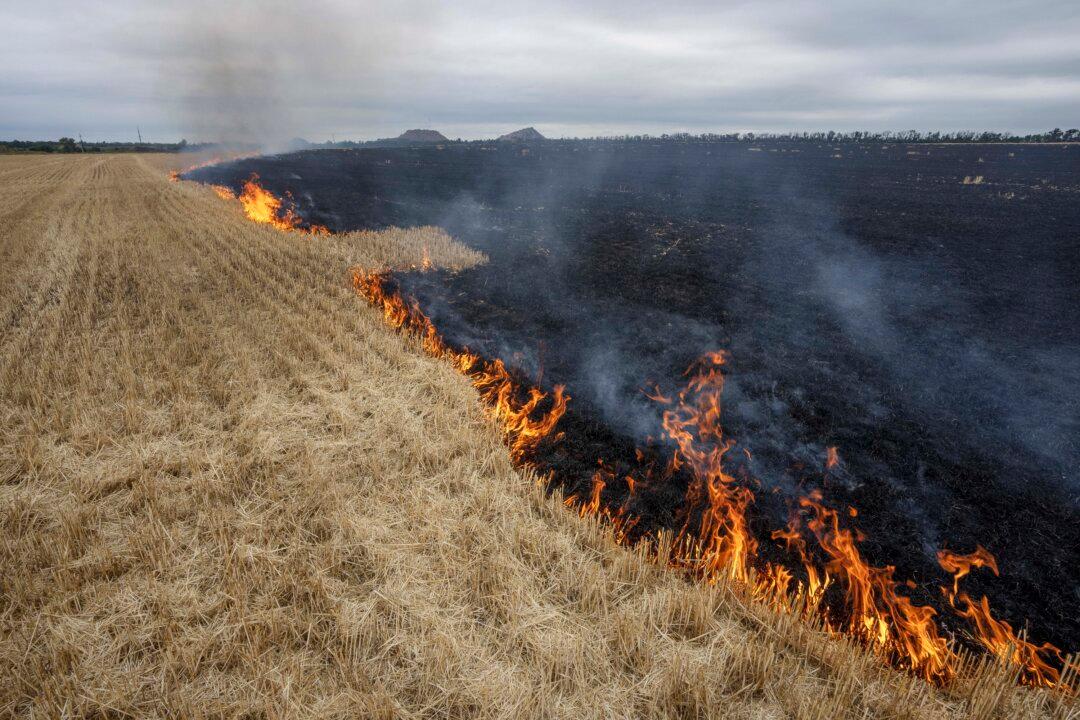KHARKIV, Ukraine—Russian shelling pounded a densely populated area in Ukraine’s second-largest city Thursday, killing at least three people and injuring at least 23 others with a barrage that struck a mosque, a medical facility and a shopping area, according to officials and witnesses.
Police in the northeast city of Kharkiv said cluster bombs hit Barabashovo Market, where Associated Press journalists saw a woman crying over her dead husband’s body. Local officials said the shelling also struck a bus stop, a gym, and a residential building.





